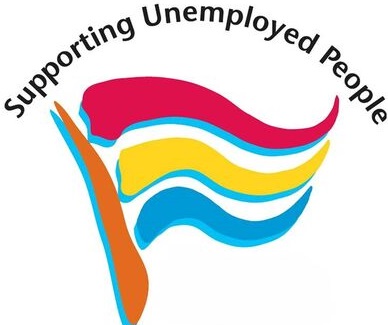In September the Irish National Organisation of the Unemployed (INOU) made a submission to the Independent COVID-19 Evaluation Public Consultation. The submission focused on three of the structures / headings used in the public survey run earlier in the summer: work and financial security; education and development; relationships, social connections and community.
Work and Financial Security
In the early days of the pandemic information was changing on a daily basis, there was a lot of confusion, and the information on our website was updated regularly. As Intreo Offices themselves moved to only opening on a part-time basis signing-on requirements were lifted, activation and penalty measures were put on hold. The Fuel Allowance was extended by four weeks; and the payment paid for a Qualified Adult (QA) on a Jobseeker’s payment was increased by €13 to bring the Claimant and QA payment up to €350 - the highest level of the PUP.
Initially the Pandemic Unemployment Payment (PUP) was a flat rate payment of €350 per week paid to employees and self-employed people who have become unemployed. Potential recipients had to be aged between 18 and 66 years, in employment up to March 13th, 2020, and this employment had since ceased. Anyone who was working part-time and claiming a Jobseeker’s payment either casually or on systematic short-time basis could only claim the PUP if they had become fully unemployed. Initially people could apply for the payment through a written application form, however given the scale and impact of the crisis, the DSP asked people to apply on-line through My Welfare.ie. In the early days of the pandemic, it was envisaged that an applicant would be paid for up to 12 weeks from the week the claim was processed and awarded.
PUP was a flat rate payment of €350, if the person could also claim for an adult and child dependents, known as Qualified Adult and Qualified Child Increases, a regular Jobseeker’s payment may have been a better option. However, if the person was in receipt of a Working Family Payment (WFP) such a move may not be advisable – as they could maintain their WFP on PUP but lose it on a Jobseeker’s payment.
As a result of the less complex application process for a Pandemic Unemployment Payment a greater number of people were able to access it. For example, young people who may not have built up an entitlement to Jobseeker’s Benefit (insufficient PRSI contributions); or if they lived at home, their parents’ income would have been taken into account if they had applied for a Jobseeker’s Allowance payment, which is means-tested; or if they were full-time students who had lost part-time work. This effective individualisation of the payment also meant for couples, each person was treated as a claimant in their own right, and the income or circumstances of their partner were not taken into account – as it is when a person makes a claim for a Jobseeker’s Allowance payment.
Over the crisis PUP was adjusted to reflect what a person earned previously and for a while there were four levels to the payment: €203; €250; €300; €350. In the Economic Recovery Plan June 2021, an alignment of the PUP with the Jobseeker’s payments over a six-month period from September 2021 until February 2022 was announced. As the country adapted to the on-going impact of the COVID-19 pandemic, the timescale set out in June was changed, though the payment for full-time students ended at the start of the 2021/2022 academic year in early September.
Education and Development
Amongst the issues arising was the challenges facing people whose living conditions were not conducive to online learning. For example, living with other people and unable to find a space to listen and interact with an online class, not having a good enough internet connection, or the necessary equipment and knowledge to use it effectively. The development of funding lines like the MAED (Mitigating Against Educational Disadvantage) and other supports were welcome to help address some of the challenges facing less advantaged adult learners.
A lot of organisations organised and ran training and events training online. The INOU has maintained and developed this work: it facilitates a greater number of people to participate in events, even though we all miss the in-person interaction and opportunity to follow-up on matters of common interest at the coffee break.
At this time, we started developing short, targeted ‘deep dives’ into specific topics. A broad range of topics have been covered since including disability payments; Back to Education Allowance; decision making process for different payments, reviews and appeals; welfare to work; and annual budgetary changes.
Relationships, Social Connections and Community
People being able to work from home, to work remotely, meant that for a lot of businesses and organisations people were able to maintain their income and organisations were able to maintain and develop their work. However, inequitable access to IT – digital equipment and / or reliable internet - impacted on how well some people could work from home. Complicated or cramped living arrangements, a number of people trying to work and study in the one household had an impact on people’s mental health, well-being and relationships. For some young people the start to their ‘adult’ working life commenced in their bedrooms, engagement with their work colleagues was online, and the opportunity to pick up additional and helpful work information informally was not available to them.
The INOU online events are also run in conjunction with more organisations from the community, voluntary, local development, public, academic or business sectors. A greater number of people are able to attend, as there is no commute the time required is just the length of the event itself. The feedback on these events is very positive and people appreciate the opportunity to hear and enquire about a range of topics, and how it resonates with their own work.
The full submission is available to view CLICK here
